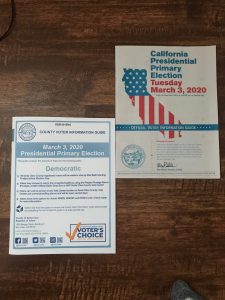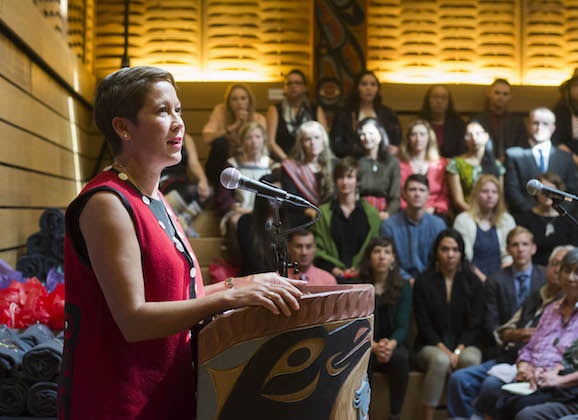Americans: Make your voice heard this primary election season
If you’re one of the many American citizens at UVic, making your voice heard this election season should not be something you ignore. Despite being across the border, voting is just as easy as it would be in your home state. It only requires a little bit of research on your home state to get started.
Most states have not yet voted for the primary elections yet, so there is still time to participate if you haven’t already. There are a number of things to keep in mind when deciding to vote.
Find out whether you will be voting in your home state or if you will vote in the Citizens Abroad primary. If your family continues to live in the United States, you can use their home address to verify you have a US address. Otherwise, check with the your party website to see what options you have.
Luckily there are websites that facilitate this process that will tell you all the information you need to vote. Votefromabroad.org can send a ballot to you in any country abroad and give you information on how the process works in your state.
Registration
All citizens wanting to vote in the American primary OR general elections must register to vote. Each state has different requirements concerning IDs or voters abroad. Check your state elections website to get this information.
As an overseas voter, you will have to provide your last US address as well as your mailing address. If you have never resided in the United States, you provide the last address your parents lived in. Make sure to note that you “intend to return” or “my return is uncertain” when registering. Remember that regardless of residency status in the United States, you ARE guaranteed the right to vote as a citizen. Certain states may not allow the “never resided” option, but simply note your intention to return (https://www.votefromabroad.org/faqs/10).
Party Affiliation
Remember that while all citizens are entitled to vote, certain parties may limit their primaries or caucuses to members of their party. States may have “closed” primaries, in which only registered members of the political party may vote. For example, you may want to vote in the Democratic Party primary but are a registered Independent or Republican.
In a “closed” primary state, only Democrats would be able to vote. However, other states have “open” primaries where you do not need to be registered for a political party to vote in a primary, which allows anyone to vote in the primary of their choice.
The bottom line is, if you would like to vote in the primary you should declare your party affiliation on your registration form to avoid any difficulties.
Primary Vs. Caucus
Primaries are run by the state government and are just like a normal election. Voters will head to their assigned polling stations on Election Day and vote on a secret ballot. As an international student, you will have to register as an overseas voter and receive your ballot through the mail. Simply vote, postmark your ballot, and send it back to your home state for it to be counted. That’s it!
If you are from a state that votes by caucuses, however, it gets more complicated. These are a rare form of voting typically only done in smaller states. The most notorious caucus state is Iowa where the mess was on full display.
While states have different systems, voters are asked to gather in a large room or auditorium and are asked to move to one side of the room to where their preferred candidate representative stands. Once the number of individuals in the room are counted, the candidates that represent less than 15% will be deemed “not viable” and voters will have to choose their second or third choice candidates.
Voting from abroad in a caucus state differs by state. Iowa introduced the “satellite caucus” this year, in which volunteers from around the globe will have their own caucus just like it would work in their home state. Some similar forms of e-voting and ballot systems are being introduced with other caucus states. Check your state elections page for more information.
Video explaining primaries and caucuses
When I get my ballot… Why so many options?
The media hype this election season revolves around the candidates vying for the nomination of their party. However, keep in mind that you are also voting for your national, state, and local representatives primary election. There will likely be some voter initiatives on the ballot for local issues such as allocation of money to schools, housing, parks, etc. These can often be confusing as even the most avid political junkies are often stuck on which candidates to choose because we have never heard their name before.
Ballotpedia is a page that explains local candidates and voter initiatives. This can help you to make the right decision when you fill out your ballot. Remember, leaving certain parts of you ballot blank will not invalidate the entirety of your ballot. However, it is important to fill it in its entirety to make the most out of the democratic process.
Once you’ve done all this mail or fax your ballot through regular mail. Make sure to follow any instructions on the ballot return envelope.
Sources of Information:






